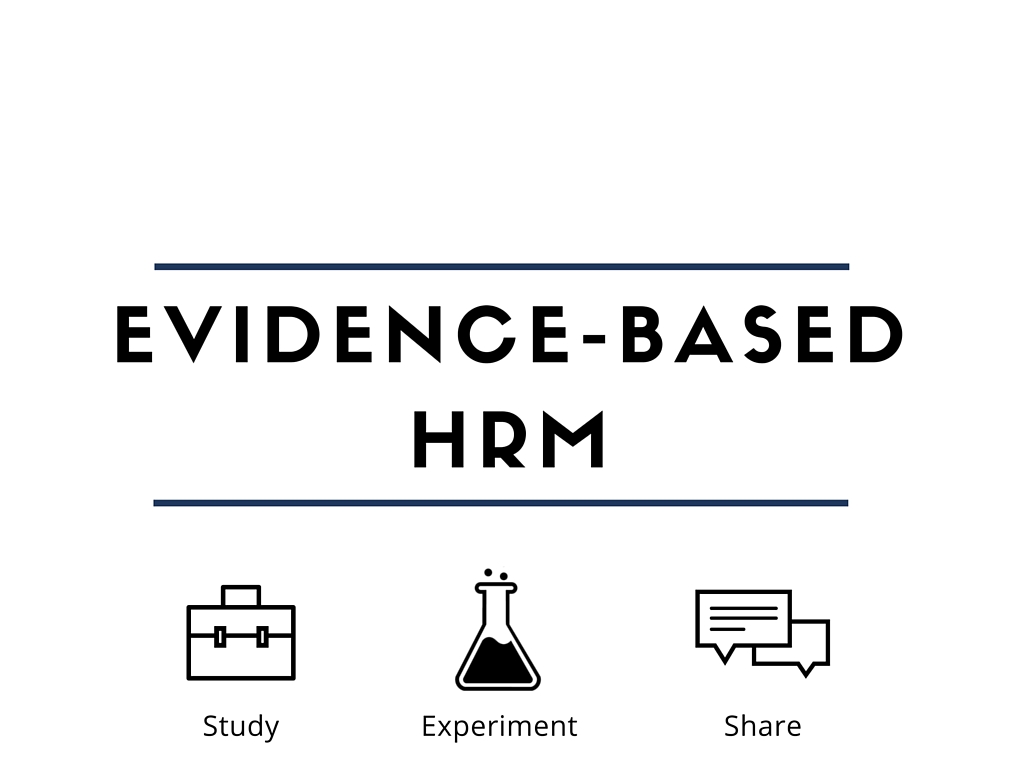The problem with evidence-based HR
Evidence-Based HR is on the rise. By using scientific insights and methods HR professionals try to professionalize their profession, increase their impact and improve their practices. Taking a decision without looking for information that can guide the way might be a wrong idea. Nevertheless it’s what many of us do.
Getting the right data is generally a challenge.
- There is not much (big) data around. Most companies have metrics that describe the current situation. Performance data is not readily available.
- Many relevant data is subjective as it’s measured through perceptions.
- Many of those perceptions are collected collectively, not individually.
- Perceptions are not easily linked to hard data. E.g. engagement levels and absenteeism are probably linked. But you do not know for sure.
- Samples are often not big enough.
- There is simply no time to measure. There is no time to read literature.
By applying some simple rules you can introduce more evidence-based thinking into your approach. I call them SES-I: Study, Experiment, Share, Intuition.
Study
In the beginning of my career I planned a regular visit to the library. This is the early internet age. I wanted to keep up-to-date. Luckily today information is easily available through the internet. But the info is very biased. If you are looking for case studies you might only find success stories, inflated with self-praise and glory. Autobiographies are often hagiographic. Inconclusive or non-significant results do not get published. So even if you do use the scientific body of literature, stay critical.
Experiment
Try things on a small-scale. Not everything will work all the time in all contexts. Experimentation is the key to progress. Make sure you define the evaluation criteria and the way you want to measure them.
Share
To get the full story, glory and failure, you can talk to peers and colleagues. What did they do to tackle a challenge. Remember that copy-paste is not possible. And if you have peers that are open to share failures, be grateful and share yours as well.
What about Intuition?
Intuition and evidence-based practices are not mutually exclusive. The thing is that you need to be aware of intuitive decision-making and biases. You can always try to improve your intuitive approach by searching for evidence that supports or even better does not support your point of view. You will improve your decision-making. Intuition is very often based on experience. Intuition can be a signal that makes you think. So listen to your intuition, be aware of your biases, and correct it by using the Study-Experiment-Share-approach.
SES-I
If you are willing to learn (faster) and progress, I am sure you can benefit from a more evidence-based approach. The SES-I framework can help: study, experiment, share and manage intuition. Evidence-based HR should not be a religion, but a matter of a professional approach.
For more info,go to the Center for evidence based management.






This is a very interesting article. It is a fact that the HR environment is very focused on gathering data simply to be able to justify their decisions, and why not, their existence. However, making the best decision is not merely a matter of data. The SES-I “formula” represents a more realistic approach, thus it can generate better results. Thank you!